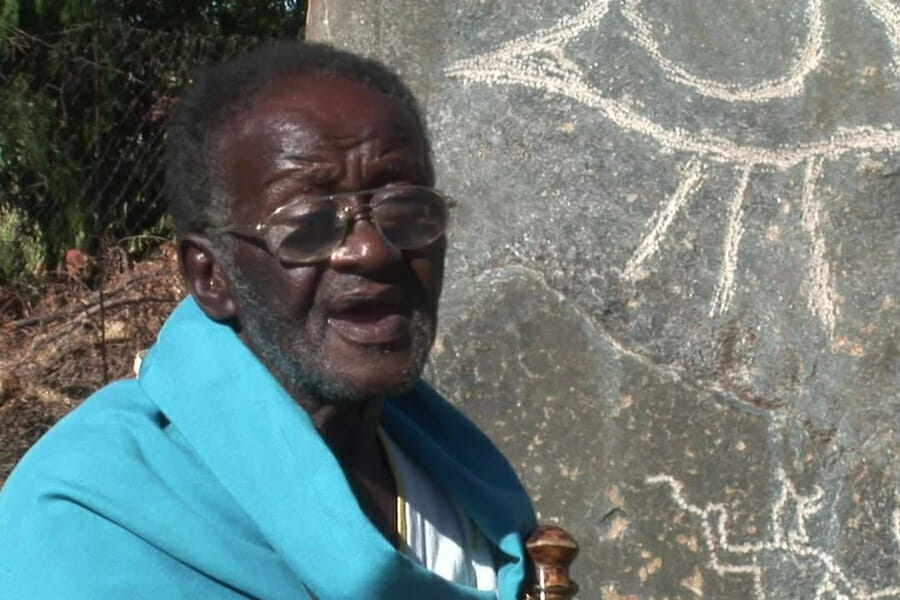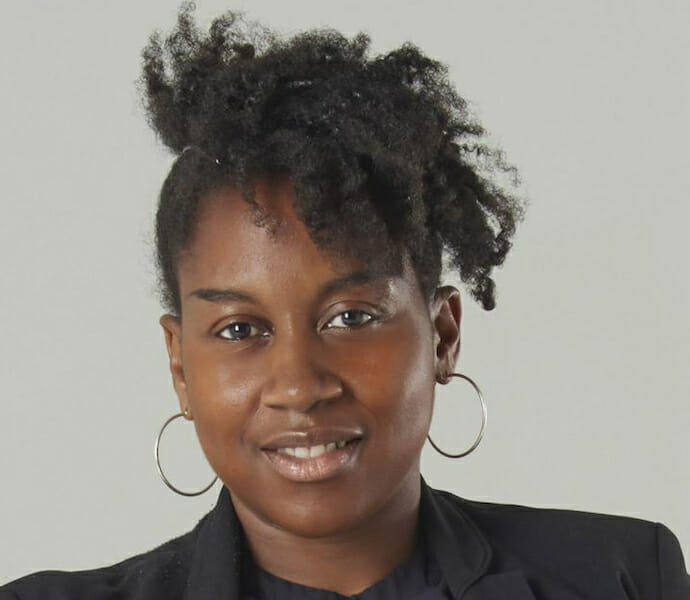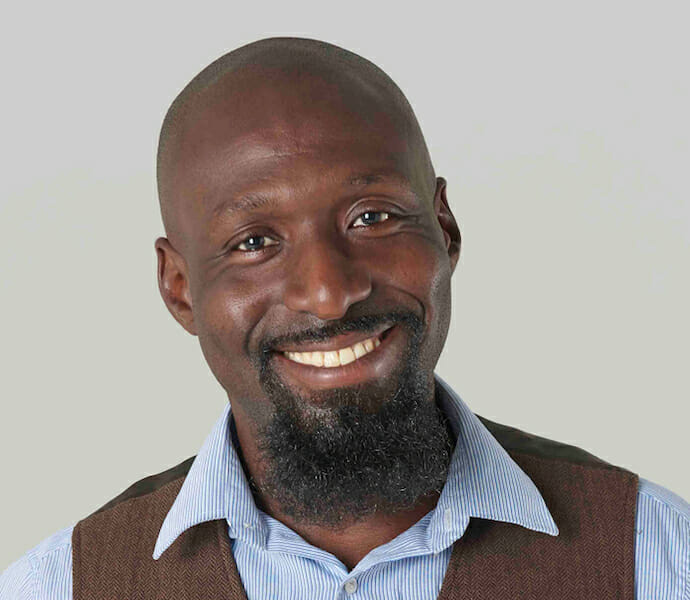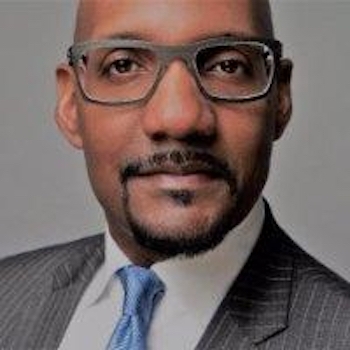
Culture
‘Spirit Is Eternal’: A Conversation with Filmmakers Dalian and Verona Spence-Adofo
In his epic 1973 masterpiece, Two Thousand Seasons, Ghanian novelist Ayi Kwei Armah framed the whole of black life as one of remembrance. “The linking of those gone, ourselves here, those coming, our continuation, our flowing… along our living way, the way: it is that remembrance that calls us,” he wrote; that remembrance not only birthed successive waves of global insurrection, but directed the everyday lives of millions of forcibly dislocated Africans; and that remembrance is what inspired the making of Ancestral Voices: Spirit Is Eternal, the groundbreaking two-part documentary film from London-based filmmakers Dalian and Verona-Spence Adofo.
Speaking exclusively to International Policy Digest, the husband-wife duo spoke openly about the nature of authentic African ancestral spiritual systems and practices, countering the psychological deadlock of mainstream religion, and why social media and film are the most immediate platforms for delivering their message.
Revealing as he is insightful, Dalian, a Ghanaian-born filmmaker, producer, and graphic designer, pins down the issue. “What we know ancestral philosophies to be,” he says, “is not a religion; it is a way of life. It’s a system of instruction for how you are to live your life, how you are to find your talents and abilities, and how you are to cultivate the best within yourself…and you can access this potential through practices that our ancestors have used for millions of year. They are instructions that feed into the very chromosomic memory, your DNA.”
From the ninth-century accounts of Arab writers such as Ibn Qutabaya and Ibn Buṭlān, to mid-nineteenth-century English missionary education and American intelligentsia, the alternative psychic, intellectual and social authorities of African and enslaved Black peoples have always been deemed problematic. No doubt, the revulsion towards Black cultural integrity was an ignorance largely rooted in larger political and economic interests.
Vis-à-vis Black Africa, however, knowledge and ritual practices among Africans of the New World, from herbal medicine to harvesting cycles, divination, or naming ceremonies, were passed down inter-generationally. Ancestral knowledge and practice comes through ones direct bloodline. Hence, the Adofos argue that ancestral knowledge and practice is the birthright of continental Africans and diasporic Blacks alike.
Implicit, then, is the fundamental role that cosmological structure plays within the wider organization of society and how it shapes the individual. As Dalian puts it, African indigenous spirituality, “deals primarily with nature. And nature is all encompassing and ever present. So, nature is not something you can escape from.” By his logic, then, one cannot also escape one’s ancestors.
Take, for example, the various classes of Divine Spirit-Forces found throughout the Black world. Spirits-forces in nature referred to in Egypt-Nubia as Neteru/Neters, Lwa in Haiti, Ifa’Orixa in Trinidad and Brazil, the Abosom of Jamaica’s Obeah and the African-American Hoodoo tradition, come directly from the Akan, Ewe/Fon, Yoruba, Dagara and Bakongo nations of West and Central Africa.
What’s more, these classes of spirit fall within a highly dynamic, complementary arrangement of the Supreme Being’s expression within creation; the Supreme Being, here, are the Great Mother and Great Father—Assase Yaa and Nyame in Akan, Mawu and Lisa in Vodou, or Ausar and Auset in Egypto-Nubian, for example.
Life is a cycle birth, death, rebirth…https://t.co/2de87Y9zDs#ancestralvoices pic.twitter.com/tEw6YaYU2V
— Ancestral Voices (@AncestralVoices) December 11, 2017
The fundamental importance of authentic cosmological structure cannot be overstated here. In indigenous African systems, Divine Spirit-Forces govern the cyclical rhythm of all life as the expression of divine order. The harmonious, balanced life is one lived in line with the very cultural practices that replicate that very same conception of order. Consequently, ancestral practices become moral and ethical foundations for addressing the immediate problems of the people based upon how ancestral culture is expressed locally.
Given Dalian’s insights, “Ancestral Voices” is not properly speaking a documentary film project alone; it is a problem-solving tool for recovering an awareness of ancestral religious values as a living continuity of a people’s past—the ideological underpinnings of which are profoundly staggering.
In this vein, what the Adofos argue is disarmingly simple: “It’s not natural,” as Verona explains, “for people to not be aware of their own history, their own culture, and their own spiritual teachings. In many communities this is something that is taught within the home, but for many of us, this information was not taught in the home.”
Admittedly, both Dalian and Verona experimented with other faith traditions. Fortunately, that experimentation opened the door for enquiring further. Reared in what she calls an “old school” Jamaican household, Verona recalls that “Christianity never sat well with me. From a young age I was aware that there were a lot of parts of the story that just didn’t resonate with me.”

From her teenage stint as an atheist, to explorations of her “spiritual side” through conspiracy theories and New Age philosophy in her early twenties, Verona acknowledges, “It was a kind of good pathway for me because it taught me to question my own reality.” But it was in her late twenties that she began delving into her own bloodline. She also met Dalian along the way.
Likewise, Dalian reflects on his own path. “Growing up in Ghana people want to extract aspects of their culture and almost separate it from spiritual practices and philosophies. So, they might do a naming ceremony in a traditional way…the child will get traditional naming and end up being taken into a church for baptism. There’s this almost this kind of conflict between these two ideologies because one is trying to usurp the other.”
“I was raised Catholic,” he goes on to say, “but I fell out of love with it…When I left Catholicism I studied Islam for quite a while.” However, it was in a Buddhist temple that, “It really became clear to me…I know a lot about all these religions and other systems, but I actually hardly know any about my own.”

Here, Verona brings the point home. “We were both openly questioning this path. The information we came into,” she clarifies, “completely contradicted all the negative stuff you hear. What we have both found growing up is if you have certain questions about this topic, there was no one to speak to. You’re often shut down if you have certain questions, or people look at you like, ‘Oh my God, you’re into witchcraft; you’re into something really crazy and devilish,’ and so you can become isolated for asking certain questions.”
Since both had written and produced a few short films in their respective careers, collaboration was natural; the subject, still taboo. Eventually, the two sought to find a medium that would be best for getting the information out and making it as accessible as possible.
The result was a documentary film shot on two continents featuring internationally respected authorities on the subject. South Africa’s world famous Zulu traditional healer, Vusamalazulu Credo Mutwa; Haitian Historian and Educator, Bayyinah Bello; and Dagara Initiate and Author, Sobonfu Somé, are just some of the experts in the film.
With no real marketing budget to speak of, Dalian and Verona used quotes from proverbs, and film outtakes, as well as screenings of the film, launching www.ancestralvoices.co.uk, a Facebook page, Tumblr, and heavy involvement on Twitter: @AncestralVoices, and Instagram: @ancestral_voices. A chapter of Dalian’s book, Ancestral Voices: Spirit Is Eternal is also available for download.
Post screening feedback, Ancestral Voices 2 https://t.co/2de87Y9zDs#ancestralvoices #documentary #film #africanspirituality #culture #philosophy #cosmologies #knowthyself pic.twitter.com/4Vhrd5uN6l
— Ancestral Voices (@AncestralVoices) December 4, 2017
But not everyone is convinced.
With so much talk of “spirituality” and “ancestors,” one may well ask what any of this has to do with murderous dictators, endemic corruption, fetish witchcraft, tribalism, skin bleaching, or the selling off of national resources, in Africa. Moreover, how is any of this tied to the breakdown of families, and a seeming inability to gel collective resources for greater progress throughout the diaspora?
Verona does concede that, “You have traditional priests out there, or people who are claiming to be traditional priests who are not doing the right things by their people, utilizing people for money.” But the emphasis, she maintains, “should be about developing your own intuition and your own spiritual connection.”
The psychological conflict—between mainstream faiths and cultural practice is, perhaps in part, motivated not only by lack of knowledge, but by survival mechanisms driving destructive everyday decision-making. Couple this with ancestral religious values and philosophies being emptied of their deeper metaphysical content by those willing to exploit, and you have generations being robbed of historical technique, method, and ability.
In the end, however, Dalian says it best, “One cannot live without principles.” What principles? Well…

